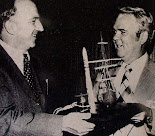THE WOODSTOCK FORUM:
Building a Peaceful, Just and Sustainable Economy
It is 40 years since the historic Woodstock Festival crowned an era now associated with peace, love and rock and roll. Although the 1969 festival itself did not take place in
 Woodstock, but in Bethel many miles across the Catskills, the town of Woodstock, New York, nevertheless, has become a pilgrimage point for people seeking to either rekindle those years of love and music, or at the very least to buy a tie-dye T-shirt. Despite the great deal of hoopla surrounding the 40th anniversary of the famous festival, very little attention has been paid to the philosophical culture which permeated the event and its aftermath.
Woodstock, but in Bethel many miles across the Catskills, the town of Woodstock, New York, nevertheless, has become a pilgrimage point for people seeking to either rekindle those years of love and music, or at the very least to buy a tie-dye T-shirt. Despite the great deal of hoopla surrounding the 40th anniversary of the famous festival, very little attention has been paid to the philosophical culture which permeated the event and its aftermath. In 1969 the Vietnam War was a central focus for the passion of the crowd and the many songs of protest. At the Woodstock Forum, which took place August 15 and 16, 2009, well over 300 people heard and discussed the many pressing issues of OUR time. We are overwhelmed with on-going wars, continuing exploitation of people and resources around the world, worsening ecological devastation and usurpation of our communities for weaponry and repression. In 2009, although the name Woodstock is synonymous with "peace and love", the biggest employer in our own town is a military contractor. Given the perilous state of New York, the nation and the world, we need more than ever to discuss how to convert the engines of war for a peaceful future. In the sessions held at the Woodstock Town Hall on Saturday we heard from historians, poets, workers, social critics and journalists such as:
In 1969 the Vietnam War was a central focus for the passion of the crowd and the many songs of protest. At the Woodstock Forum, which took place August 15 and 16, 2009, well over 300 people heard and discussed the many pressing issues of OUR time. We are overwhelmed with on-going wars, continuing exploitation of people and resources around the world, worsening ecological devastation and usurpation of our communities for weaponry and repression. In 2009, although the name Woodstock is synonymous with "peace and love", the biggest employer in our own town is a military contractor. Given the perilous state of New York, the nation and the world, we need more than ever to discuss how to convert the engines of war for a peaceful future. In the sessions held at the Woodstock Town Hall on Saturday we heard from historians, poets, workers, social critics and journalists such as:Peter Woodruff, worker in a Maine weapons factory; grass roots organizer, Mary Beth Sullivan; legendary activist Diane Wilson, author, An Unreasonable Woman and co-founder Code Pink; poet and teacher, Janine Vega; curator and gallery director, Ariel Shanberg; award winning journalists Jeremy Scahill and Jeff Cohen; economist Robert Pollin; historians Sylvia Federici, Simon Harak, SJ, and Richard Grossman; social critics Joel Kovel and George Caffentzis; filmmakers DeeDee Halleck and Tobe Carey.
The speakers painted an ominous view of how militarism has gripped our communities, our culture and our lives.
On Sunday the Forum switched from presentations on what was wrong to reflections on how citizens could right those wrongs. A day of deliberation, contentious at times but essentially forward moving, led to the drafting of an initial statement and the framing of ways to build movements, local as well as regional and national, to carry the struggle forward.
Statement from the Woodstock Forum
We, participants of the Woodstock Forum, meeting August 15 and 16, 2009, the 40th anniversary of the Woodstock Festival, reclaim the authority for our lives and our communities. We reject the usurpation of our rights by the military-industrial-media complex.
We reject the actions of our country to foment wars around the world and to manufacture, export and sell weapons. Weapons are the number one U.S. export. Our cities and towns have become home to industries for death and destruction.
We declare that:
1. we will map and research the military industries that control the economies of our communities, that control the minds and pockets of our government officials, that pollute and destroy our land and waters.
2. we will draw attention to these industries of death through educational outreach to local and national media and with imaginative and creative non-violent actions.
3. we will build coalitions to convert weapons-making to peaceful manufacturing and to create meaningful work in education, the arts, health care, and ecological development.
4. we vow to take personal responsibility for the products in our workplaces and in our lives.
We will not cease our resistance to the death machines in our midst and to the laws that support them.





















